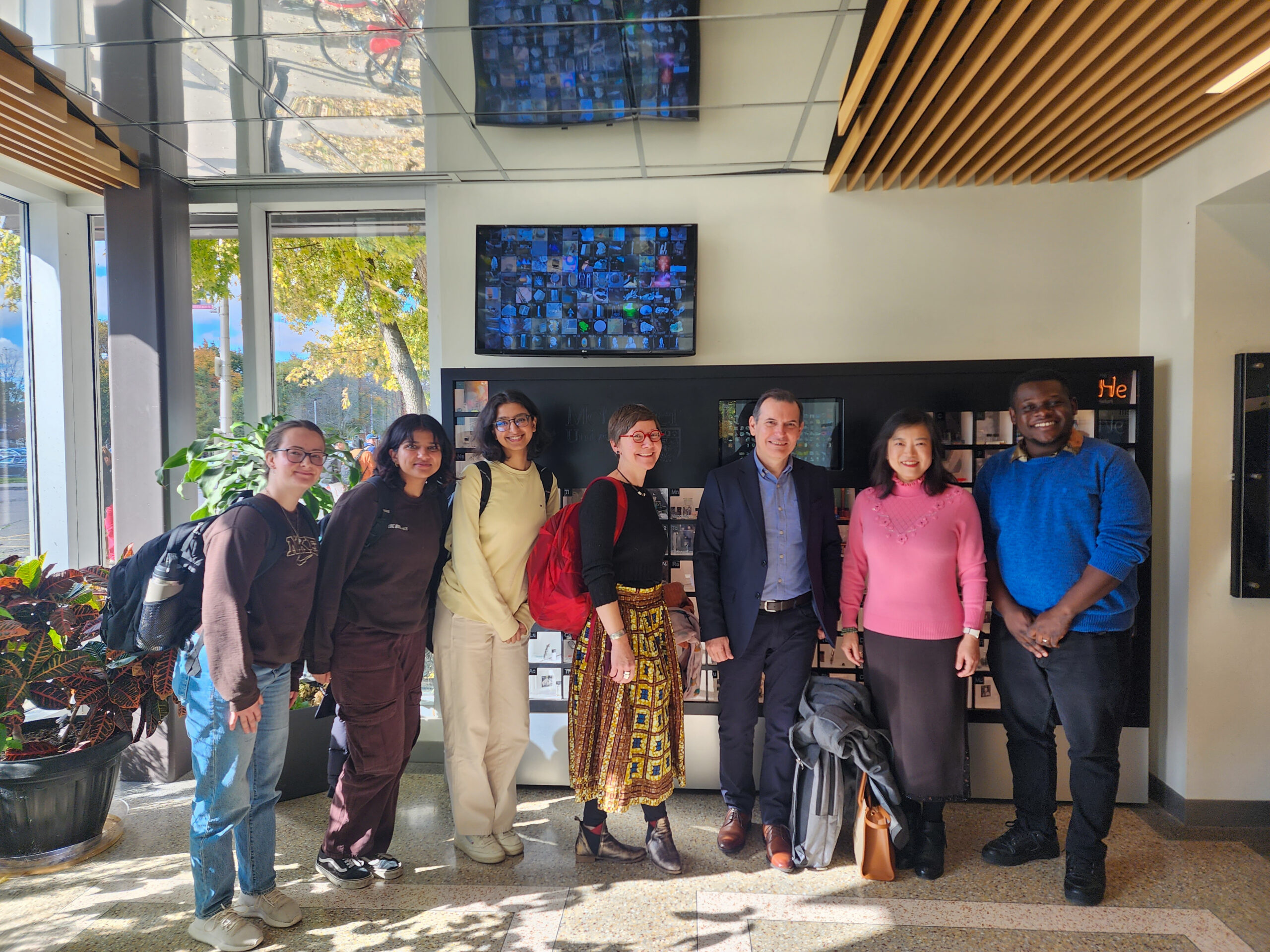“Making ‘Global Health’ Global”: Recognizing Equity as an Intentional Act

The image above features Global Health Seminar presenter, Dr. Madhukar Pai (April 26th 2024). The blog post below was written by Global Health student Michelle Pham.
“We [Global North actors] are far away from the real problem, so we are likely to be far away from the real solutions” stated Dr. Madhukar Pai during his Global Health Seminar presentation. Pai is the Department of Global Health Inaugural Chair at McGill University, holds a Tier 1 Canada Research Chair in Epidemiology & Global Health, and is the Editor-in-Chief of PLOS Global Public Health. In his seminar entitled ‘Building Equity in Global Health: The Role for Global North Actors,’ Pai articulated the pressing inequities pervasive in global health and underscored the pivotal responsibility of Global North stakeholders in addressing them.
Pai initiated the seminar by prompting attendees to contemplate the essence of global health. He explained that, despite its well-meaning intentions, global health can harbour inherent contradictions. While global health aims to tackle global disparities, Pai underscored its roots in supremacy. This reality becomes apparent when examining the power dynamics within global health governance, where a disproportionate share of funding flows to institutions in high-income countries. Similarly, in the realm of scholarly output, Global North authors dominate first and senior authorship positions. This pattern extends to editorial boards and citation rates, where non-White scientists face notable underrepresentation. Moreover, logistical challenges, such as lengthy visa processing times for conferences hosted in countries like Canada, further exacerbate disparities by limiting the participation of researchers abroad. Consequently, those most impacted by global health disparities are frequently unable to engage in these “global health” discussions. Ultimately, Pai noted that “we [Global North actors] are the biggest gatekeepers of knowledge in global health.”
Pai subsequently highlighted the multifaceted implications of these structural inequities in global health. One key takeaway is that we, as global North actors, are likely far away from the problem and thereby, likely far away from the real solutions. This disconnect can arise from our limited exposure to the lived experiences of those targeted by global health interventions. Moreover, our privilege may skew our perception. Consequently, we may encounter a mismatch between what the Global North likes and what the Global South wants. Pai explains that while the Global North historically adopts a philanthropic approach to global health, the Global South seeks self-determination, self-reliance, and justice instead of “gifts”. Pai poignantly highlights this point by asking attendees to consider: “Are we [Global North actors] the best ones to solve the problem?”
Pai concludes that a key role for Global North actors is being allies if invited to do so. We need to listen to our Global South colleagues to figure out how to shift this pendulum in power within global health. Pai ends his meaningful seminar by empowering us with the following potential ways we, as Global North actors, can work toward building equity in global health:
- Use inclusive and respectful language: Avoid perpetuating structural hierarchies through terms such as “developing vs. developed”
- Advocate for conference equity: Make sure those most impacted by global health issues can participate (i.e., reducing visa-related barriers, rethinking where conferences are held, etc.)
- Promote male allyship: Support female leadership and representation in global health
- Improve equity in global health journals: Ensure inclusivity in global health literature (i.e. increasing representation in the journal staff, reducing article processing fees, etc.)
- Increase equity in authorship: Global health partnerships should be reflected in authorship (i.e., increasing local member representation in first and senior authorship, etc.)
- Rethink global health training in high-income countries: Highlight readings and perspectives beyond the Global North and actively address saviour narratives common in education and training programs
- Ensure genuine global health partnerships: Consider the reciprocal nature of relationships
- Practice ‘GLocal Health’: Address issues within our own country and collaborate with local communities
- Global health funders need to be allies: Funders should support equitable global health research and recognize approaches beyond dominant Western-biomedical frameworks
- De-center from the Global North: Enable the Global South to set the global health agenda
Through Pai’s seminar, it is evident that inequities exist in global health that can hinder the inclusivity and effectiveness of global health efforts. As Global North actors, it is important we do not reinforce these inequities but take steps toward dismantling them. In Pai’s words, “eternal vigilance is needed.” To envision a future where global health is characterized by equity, intentionality is essential. We must continually strive toward becoming effective allies in this ongoing endeavour.
Student Blog
Related News
News Listing

November 12, 2024

November 5, 2024

Pollution, Power, and Protest: Unpacking Environmental Racism from Africville to Wet’suwet’en
Student Blog
October 10, 2024
